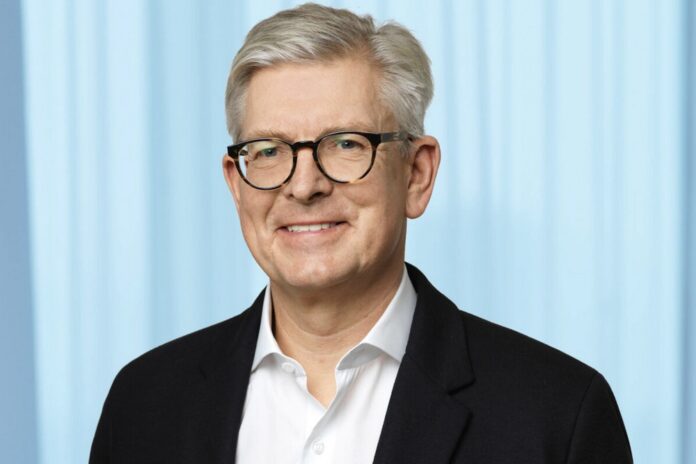The vendor sees sales and RAN market in decline in Q1 but first-quarter operating profit and earnings per share still above market expectations
Ericsson president and CEO Börje Ekholm said customers remained cautious about investing in their networks, after the vendor saw network equipment sales in Q1 2024 were down 19% from a year earlier. Meanwhile CFO Lars Sandstrom suggested Dell’Oro’s forecast that the global RAN market will decline 4% this year was “a bit optimistic as we see it now”.
Ekholm however seemed cautiously optimistic that while the global market isn’t going to take off, the company was seeing signs it will be less bad than 2023. He said if current trends continue, sales should stabilise in the year’s second half, “benefiting from recent contract wins and the normalization of customer inventory levels in North America.” He added that gross margin in the second quarter should be in the 42% to 44% range, bolstered by an improved business mix.
Despite the sales decline, markets reacted positively to Ericsson’s results due to its gross margins excluding restructuring charges improving to 42.7% in the quarter – comfortably ahead of market expectations. Net income improved to SEK 2.6 billion, from SEK 1.6 billion YoY.
Europe’s telco market needs to change
On the company’s earnings call, Ekholm pulled no punches when asked if the business is drifting without a catalyst for increased spending by operators. Firstly, he addressed the investment pause was starting to impact operator network capacity.
“The reality is we see the traffic growth in the networks continues. And you start to see – in many markets, not singling out anyone specifically, but you’re starting to see congested networks, which means that when it’s crowded, you’re in a crowded space,” said Ekholm.
“You may actually get the signal, but you can’t really use it. You have simply no capacity left in the network. We’re starting to see those signs. We start to see signs that sites are congested,” he said.
He then said what we already know – the industry has a problem with return on investments. “I think personally we need to see in-market consolidation actually start to [happen] and start to get approved. When that happens, we will get bigger scale. And it’s interesting, when you look at this from a global perspective, the average European operator is about 4.5 million subscribers,” he said.
“It’s 95 million, I believe, in the US, 300 million in India, 400 million in China,” he said. “So the scale in Europe is simply too small. So, there is consolidation needed. The second part that needs to happen, and that’s what we try to do with the Global Network Platform for network APIs, is actually to change the pricing model in the industry.”
Changing the pricing model
Ekholm said the current monthly subscription pricing model has decoupled from network traffic, network investments and so on, putting a squeeze on the operator profitability. “What we need to see happening to unlock investments is that you’re able to monetise the network features,” he said. “And that – think about it as speed, latency, could be location, could be different quality of service or differentiated experiences.”
“You can offer network slicing, for example,” he said. “We need to define that new type of use cases that unlocks those revenue streams. Otherwise, the customers, our operators, they’re not going to see growing revenues. And if they don’t see growing revenues, they’re not going to invest.”
He added: “That’s the perfect rational decision. So, I think we have that, call it, opportunity or maybe responsibility to create those new type of revenues coming out of leverage in the 5G technology in a better way. That’s why you see our investments on the Enterprise side being so important.”
In Enterprise, sales grew organically overall but declined in Global Communications Platform, impacted by a low-margin customer contract loss in Q4 and Ericsson’s decision to reduce its operations in some countries, with the impact expected to continue throughout the year. The vendor said it will continue to focus on “leveraging the current business to support the build-out of our Global Network Platform for network APIs.”
Outlook for the company
Ericsson said if current trends persist, it expects sales to stabilise during the second half of the year, benefiting from recent contract wins and the normalisation of customer inventory levels in North America.
In the second half, the vendor’s margins should benefit from its improved business mix. Ekholm said the company also remains highly focused on delivering stronger cash flow, based on its operating discipline. “While near-term dynamics are challenging, we remain fully committed to our long-term targets, and we continue to be focused on increasing shareholder value,” he said.


